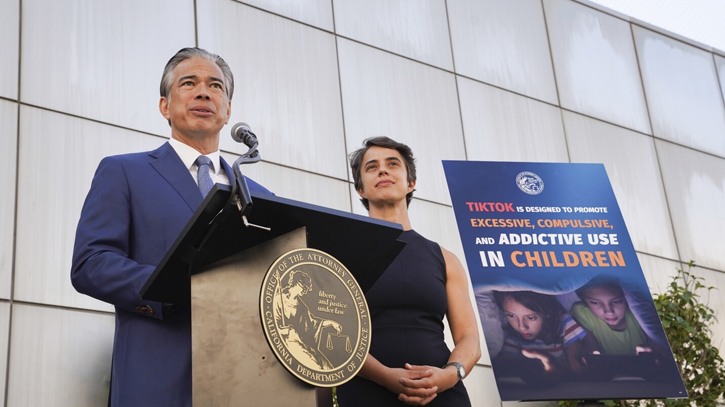
Photo : Collected
TikTok was aware that its design features are detrimental to its young users and that publicly touted tools aimed at limiting kids’ time on the site were largely ineffective, according to internal documents and communications exposed in lawsuit filed by the state of Kentucky.
The details are among redacted portions of Kentucky’s lawsuit that contains the internal communications and documents unearthed during a more than two year investigation into the company by various states across the country.
Kentucky’s lawsuit was filed this week, alongside separate complaints brought forth by attorneys general in a dozen states as well as the District of Columbia. TikTok is also facing another lawsuit from the Department of Justice and is itself suing the Justice Department over a federal law that could ban it in the U.S. by mid-January.
The redacted information — which was inadvertently revealed by Kentucky’s attorney general’s office and first reported by Kentucky Public Radio — touches on a range of topics, most importantly the extent to which TikTok knew how much time young users were spending on the platform and how sincere it was when rolling out tools aimed at curbing excessive use.
Beyond TikTok use among minors, the complaint alleges the short-form video sharing app has prioritized “beautiful people” on its platform and has noted internally that some of the content-moderation metrics it has publicized are “largely misleading.”
The unredacted complaint, which was seen by The Associated Press, was sealed by a Kentucky state judge on Wednesday after state officials filed an emergency motion to seal it.
When reached for comment, TikTok spokesperson Alex Haurek said: “It is highly irresponsible of the Associated Press to publish information that is under a court seal. Unfortunately, this complaint cherry-picks misleading quotes and takes outdated documents out of context to misrepresent our commitment to community safety.”
“We have robust safeguards, which include proactively removing suspected underage users, and we have voluntarily launched safety features such as default screentime limits, family pairing, and privacy by default for minors under 16,” Haurek said in a prepared statement. “We stand by these efforts.”
Messenger/Disha








